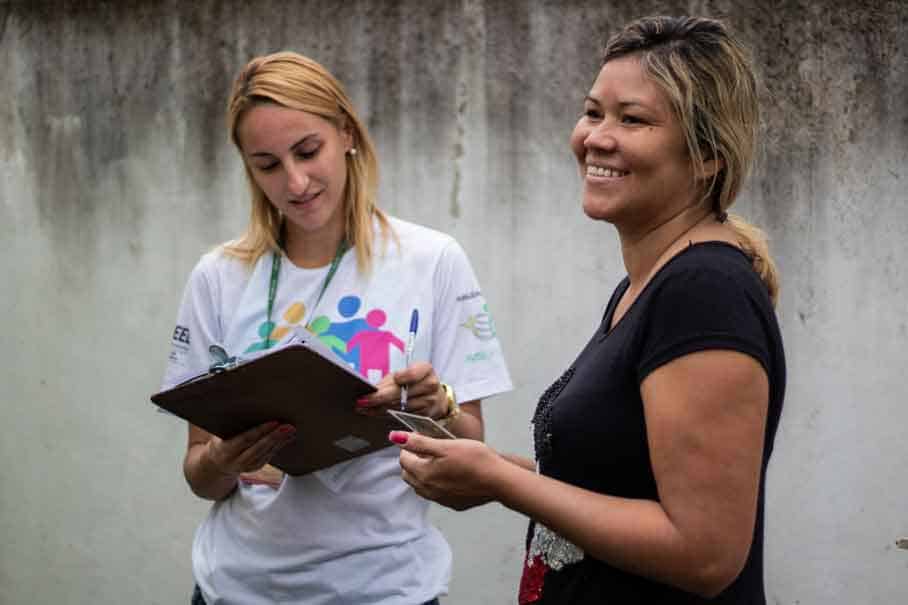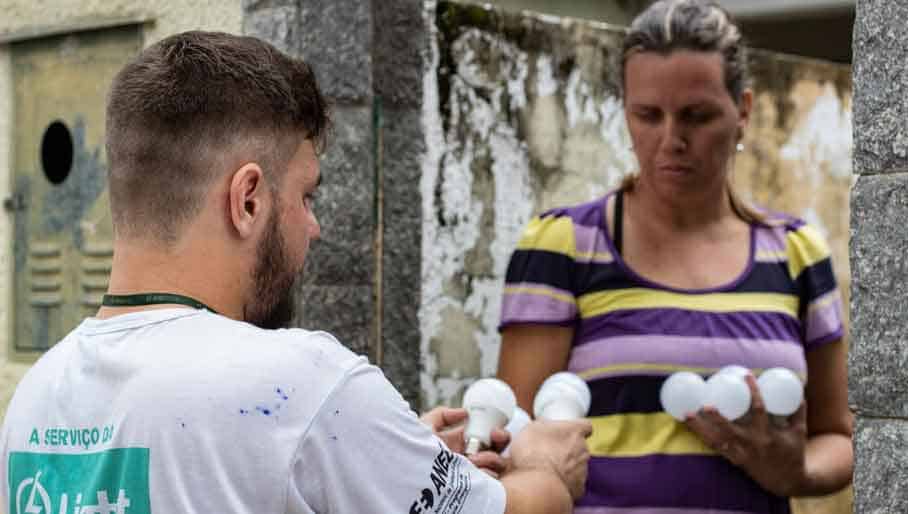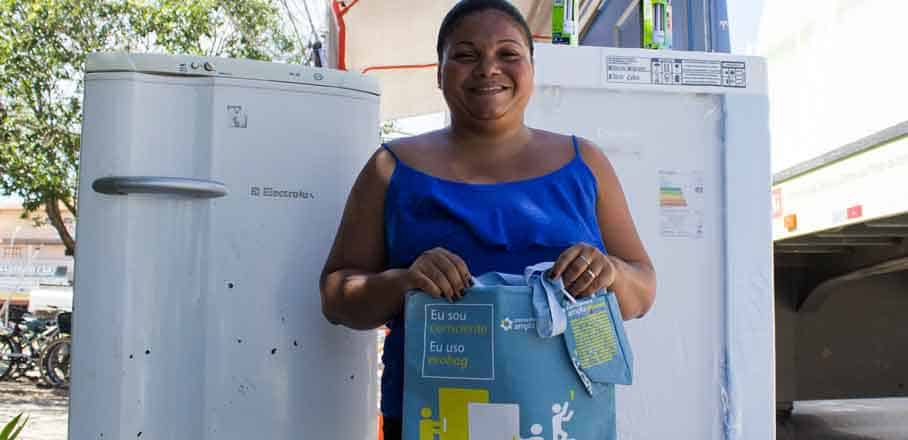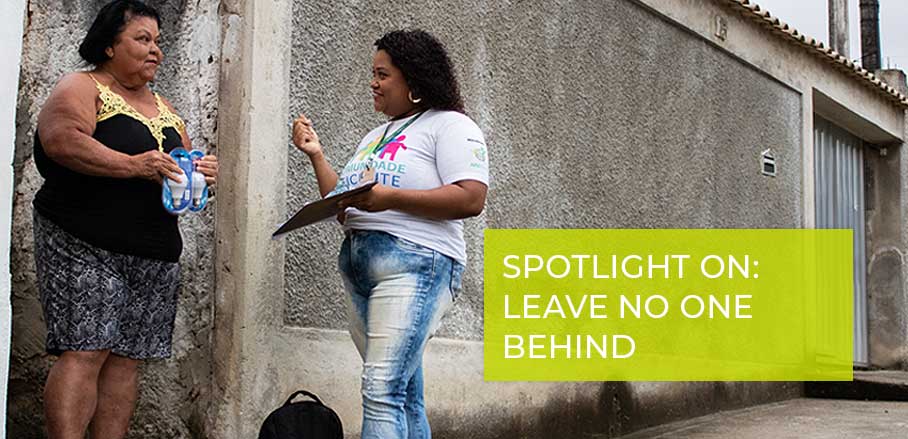PPP for Energy Efficiency in Favelas: A Success Story from Brazil
Access to energy is considered a key factor in development and progress. Especially in informal settlements, provision of energy can be challenging. Alessandro Galimberti outlines how Public Private Partnerships that include local CSOs have been key to solving this problem in many of Brazil’s favelas.
A Formula for Success
Is there an efficient and sustainable way to grant energy access to Brazilian low-income families, thus ensuring that no one is being left behind in this key area of development?
There is, and the formula is the following:
- Take a wise and favourable legal and fiscal framework designed by the local government;
- Add an energy utility that understands the huge socioeconomic and reputational benefits of the intervention;
- Complete with an integrated and holistic approach implemented by a well-established civil society organisation.
- Enjoy the results, such as annual savings of more than 30,000 megawatt hours, equalling the energy supply for a city of 36.000 people.
The Challenges of Granting Sustainable Energy Access to Favelas
After the privatisation of the Brazilian energy sector in 1995, it became clear that illegal and irregular access to electricity was extensive, resulting in widespread system losses and significant public safety concerns. At the same time, low-income households were accustomed to high levels of energy consumption due to the use of low efficiency light bulbs, faulty electrical installations, refrigerators in poor condition, and inefficient home construction with no ventilation or natural lighting. As a result, energy consumption was consistently above the customers’ ability to pay. In some cities, up to 50 to 60 per cent of electricity bills went unpaid. The impact was negative for residents, consumers, and the energy utilities alike.
The nature of favelas implied that basic tools for communication between service providers and customers – identifiable addresses, roads, telephone and postal service – were lacking. The environment fostered a conflictual relationship between utility companies and the communities, where non-paying consumers preferred to remain invisible and the utilities’ only responses to non-compliance were service cuts and ineffective legal remedies. This situation risked leaving millions of people behind with regard to the crucial aspect of the human development pathway that is energy access.
A Solution Takes Shape: CSOs as Mediators and Catalysers of Socioeconomic Benefits
Some energy utilities, also stimulated by tax incentives and/or legal obligations, designed projects to increase their market reach and improve profits through minimising inefficiencies, explicitly targeting favela contexts. The objectives of these projects were more or less the same everywhere:
- Strengthen customer relationship;
- Reduce losses from illegal electricity connections;
- Reduce energy consumption (bills) of low-income consumers in accordance with their ability to pay;
- Increase awareness and adoption of Government subsidies (Social Tariff).
No one but civil society organisations (CSOs) could implement this kind of interventions due to their proximity to, presence within and knowledge of the favelas’ communities. Only agents embedded within the favelas’ communities were and are able to reach customers and establish a balanced relationship of mutual trust with the utility. NGOs such as AVSI Brasil have been contracted as service provider due to their long experience within Brazilian slums.
Best Practice
AVSI Brasil currently operates in five states, with as many local utilities. It employs more than 300 energy efficiency agents that, through call-centres and field activities, promote domestic energy efficiency and bills payments, increase legal connections, spread social tariffs and in-bill bonuses for solid waste recycling within urban informal settlements, targeting the poorest families: absolutely no one should be left behind!

© AVSI Brasil
During the last ten years, over 1.5 million households directly benefited from the PPP: from educational and awareness raising activities on energy efficiency and the environment; from support mechanisms in buying “A-class” domestic appliances; from benefits granted in exchange of solid waste management engagement; from the distribution of over 1 million eco-save bulbs, and a variety of other measures.

© AVSI Brasil
Energy savings are certified every year. During the first years, savings reached 60 per cent compared to the baseline. Illegal electricity access dropped from 40 per cent to less than 10 per cent in all targeted communities. Bill payment non-compliance dropped from 50 per cent to 20 per cent. Importantly, utilities’ reputation, profitability, and customers’ fidelity all have significantly increased.
Towards Energy Inclusivity – Brazil and Beyond
This model of PPP achieved the transformation of an unprofitable market segment (low-income households) into a social and economic value for companies, local authorities and communities, building long-term sustainability. The key to its success lies beyond the fiscal framework and can be attributed to certain features of the utility and the CSO.
The utility should not only look at exploring fiscal incentives granted by this kind of social investments or at complying with legal obligations. It is imperative that it also builds a sustainable relationship with its low-income customers, driven by the belief that this kind of engagement creates a shared value. The CSO should be contracted not only for its energy savings promotion performances, but also for its passion and seriousness, integral and people-centred approach, ethics, and transparency.

© AVSI Brasil
Now, a valiant but valued challenge would be to reproduce the approach beyond Brazil, for example within African urban settlements. The international development community is focused on sustainable energy access for all. Yet, many suburban areas, where approximatively 50 per cent of African people live, suffer from the same problems that used to be common in Brazilian favelas. Establishing formal alliances between CSOs and utilities to promote affordable electricity bills, legal connections and, while at it, clean and safe cooking, could contribute greatly to making sure that no one is left behind in African cities.
- PPP for Energy Efficiency in Favelas: A Success Story from Brazil - 18. July 2019
- Empowering Syrian Refugees Through Cash for Work Programmes - 18. December 2018
